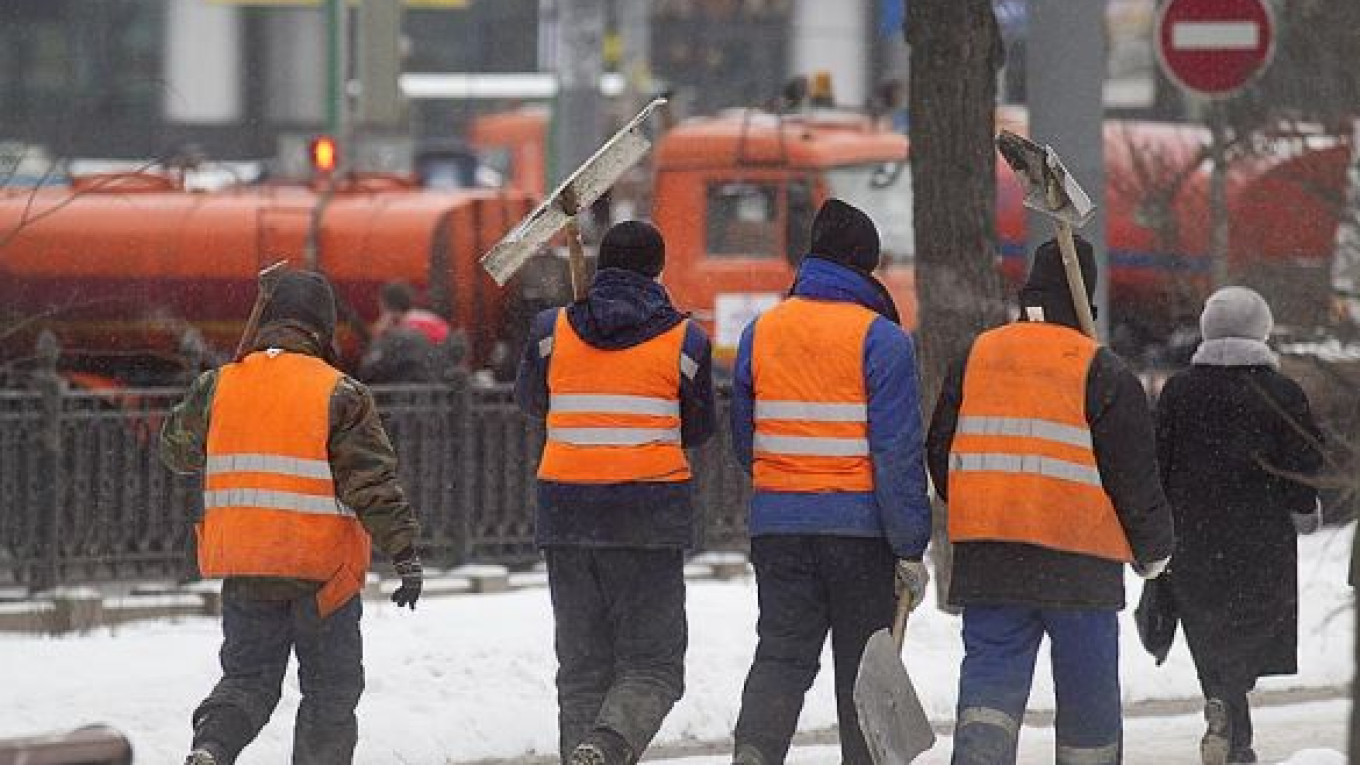Russia urgently needs to attract immigrants over the coming years to avoid labor shortages, the country’s top migration officer said Monday.
“Even if we manage to stabilize or increase the population by raising the birth rate, the only source for increasing the labor force for the coming 15 to 20 years will be migration,” Federal Migration Service head Konstantin Romodanovsky told Interfax in an interview.
Romodanovsky said that the Kremlin had ordered him to keep migration stable at about 300,000 people per year and that this number should include ethnic Russians from abroad, highly qualified foreign specialists and promising youths.
The figure of 300,000 immigrants was formulated by Vladimir Putin in a programmatic newspaper article in his presidential campaign one year ago. Critics have voiced serious doubts about its feasibility, arguing that the government’s past attempts to lure Russian speakers and qualified migrants to the country have seen little success.
Romodanovsky warned that according to official data, the country’s population is expected to fall from the current 143 million to 139.3 million by 2030. “It is problematic to refuse to attract foreign workers and to focus exclusively on your own labor resources when those are strongly declining,” he said.
However, the migration chief said he supports recent bills intended to tighten sanctions against illegal migrants. “They don’t pay taxes, they live in shacks, hang around on the streets. … It is time to put an end to this,” he was quoted as saying.
Romodanovsky suggested that a large share of the 3 million Uzbeks and Tajiks working in the country are illegals. A law Putin signed on Dec. 30 criminal charges and drastically increases fines for violations of registration rules.
National media have described the law as directed against “elastic apartments,” fake addresses at which hundreds and even thousands of migrant workers are registered. Critics have called the law a populist gesture toward anti-
immigration sentiment in the country.
Russian law stipulates that foreigners inform the migration service of their whereabouts when they stay longer than seven working days in the country. According to rules reinstated in 2011, this can also be a company address for foreign employees. The law also requires Russian citizens to register any given home address three months after they move there.
Experts said that while recent reforms have greatly eased the country’s registration system, illegal registration documents are still widespread, especially because many employers require local registration as a hiring requirement.
“What might be easy on paper is often cumbersome in practice,” said Pavel Chikov, head of the Agora human rights organization. He pointed out that the rules stipulate a landlord’s consent and sometimes require the landlord to be present for the registration process, which typically involves standing in long lines.
Chikov predicted that the stricter rules would only increase corruption. “Higher fines will mean higher bribes,” he said.
Romodanovsky defended the new measures by saying they would hit the least welcome migrants. “As a rule most violators are young people who do not know Russian and have professional training. They are the ones who annoy the population. I believe that the complaints against them are well-founded,” he said.
Contact the author at n.twickel@imedia.ru
Related articles:
A Message from The Moscow Times:
Dear readers,
We are facing unprecedented challenges. Russia's Prosecutor General's Office has designated The Moscow Times as an "undesirable" organization, criminalizing our work and putting our staff at risk of prosecution. This follows our earlier unjust labeling as a "foreign agent."
These actions are direct attempts to silence independent journalism in Russia. The authorities claim our work "discredits the decisions of the Russian leadership." We see things differently: we strive to provide accurate, unbiased reporting on Russia.
We, the journalists of The Moscow Times, refuse to be silenced. But to continue our work, we need your help.
Your support, no matter how small, makes a world of difference. If you can, please support us monthly starting from just $2. It's quick to set up, and every contribution makes a significant impact.
By supporting The Moscow Times, you're defending open, independent journalism in the face of repression. Thank you for standing with us.
Remind me later.


